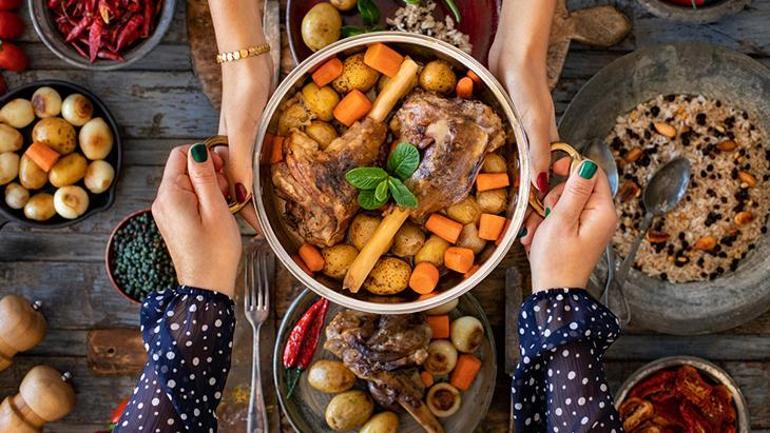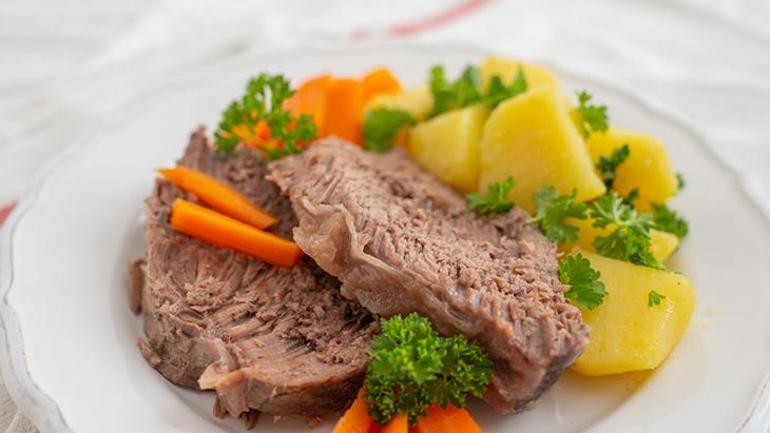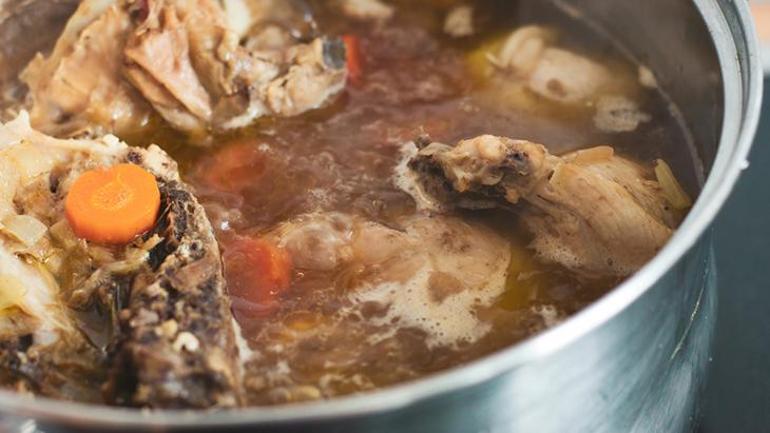Daily meat consumption should be 100-150 grams! 'Eat boiled meat, not roasted'

Attention should be paid to meat consumption
Noting that meat consumption during Eid al-Adha can generally be more than normal, Lecturer Kübra Şahin said, “However, it is important to pay attention to the amount of daily meat consumption in order to stay healthy and not experience digestive problems. Daily meat consumption for an adult should be around 100-150 grams (cooked weight). When cardiovascular health and kidney functions are taken into consideration, meat consumption should be in more limited amounts (for example 70-100 grams).”

Avoid roasting and frying during the holiday!
Şahin, who explained that the cooking method of meat directly affects both its nutritional value and its effects on health, continued as follows: “These differences become even more important during periods when meat is consumed heavily, such as Eid al-Adha. Boiling is a recommended healthy cooking method. It is a low-calorie method and easy to digest. The fat content decreases because some of the fat passes into the water. Baking in the oven is also a recommended healthy cooking method. It preserves the nutritional value to a great extent. It allows cooking without adding saturated fat. If there is cooking at extremely high temperatures, there may be nutrient loss and formation of harmful compounds. Roasting is a cooking method that should be avoided. It can be difficult to digest. Since it contains high saturated fat and cholesterol, the risk of cardiovascular disease may increase. Frying is also a cooking method that should be avoided. Fat absorption is high, which increases the amount of calories and saturated fat. The digestive system may have difficulty.”
Cook the meat that has rested in the refrigerator for 12-24 hours.
Kübra Şahin, who stated that consuming freshly cut meat immediately can cause both digestive problems and is not suitable in terms of meat quality, said, “After the animal is slaughtered, the meat contracts and hardens. Meat consumed immediately is hard and difficult to chew and digest. Bloating, stomach pain, indigestion, reflux and gastritis complaints increase. The muscle fibers of meat rested in the refrigerator for 12-24 hours relax, become softer and more delicious, and easier to digest. It is also safer in terms of microbiology. If proper hygiene is not provided, fresh and still-heated meat can be a suitable environment for bacterial growth. Especially if storage conditions are not suitable, diarrhea and nausea can cause food poisoning.”

Red meat is rich in protein and fat, but…
Şahin, who stated that red meat is rich in protein and fat but poor in fiber, vitamin C and carbohydrates, said, “Vegetables are a source of fiber. They support the digestive system, regulate bowel movements, and are a source of antioxidants, vitamins and minerals. Whole grains (whole wheat bread, bulgur pilaf) are a source of carbohydrates and provide energy and balance blood sugar. Thanks to their fiber content, they keep you full for longer with meat. Fermented dairy products such as yogurt-ayran-kefir support digestion with their probiotic content. Foods containing vitamin C (lemon salad, tomatoes, green peppers, parsley, orange, pomegranate, etc.) increase iron absorption.”
Children should consume meat with vegetables
Noting that children should consume smaller amounts of meat (approximately 50-100 grams) according to their age and developmental status, Lecturer Kübra Şahin said, “Boiling, baking or steaming should be preferred. Frying and high-fat roasting should be avoided. Since their immune systems are not fully developed, it is very important for the meat to be well-cooked. They should cut the meat into small pieces and consume it with vegetables, yogurt and whole grains.”

Meat for the elderly should be prepared in an easy-to-chew way.
Şahin, who pointed out that the elderly should consume more limited amounts (e.g. 70-100 grams) considering their cardiovascular health and kidney functions, said, “It should be prepared in a soft and easily chewable way. Heavy methods such as roasting and frying should be avoided and excessive salt should not be used due to blood pressure problems. Stomach acid decreases in the elderly, therefore hard and fatty meat and spices can cause digestive problems.”
Taking a light walk after a meal is essential for digestion.
Şahin, who also drew attention to the negative effects of excessive meat consumption on the digestive system during the holiday, said: “Constipation, indigestion and bloating, stomach pain and cramps, and slow bowel movements may occur. In order to reduce these negative effects, it is necessary to increase the consumption of fibrous foods, consume enough water, stay away from fatty and fried foods, control portions, take light walks after meals and consume probiotics.”
Physical activity reduces bloating
Providing information about physical activity and water consumption after meat consumption, Lecturer Kübra Şahin said, “Physical activity speeds up the digestive system, ensures that the stomach and intestines work better and reduces the risk of constipation. It also supports metabolism, increases blood circulation, and reduces cramps and bloating. Water consumption helps dissolve and absorb nutrients in the stomach and intestines. It facilitates the movement of fibrous foods in the intestines. It also prevents constipation, detoxifies the body and relaxes the stomach.”
milliyet




